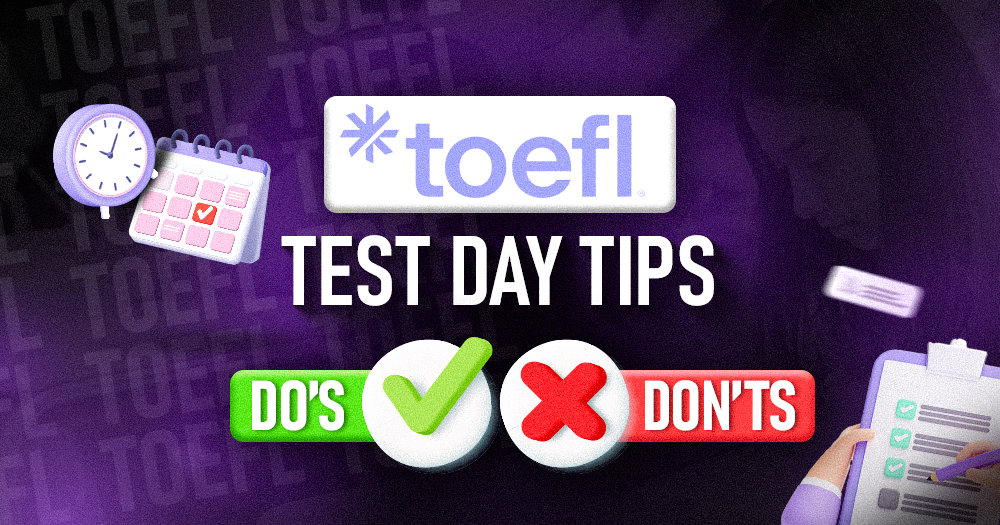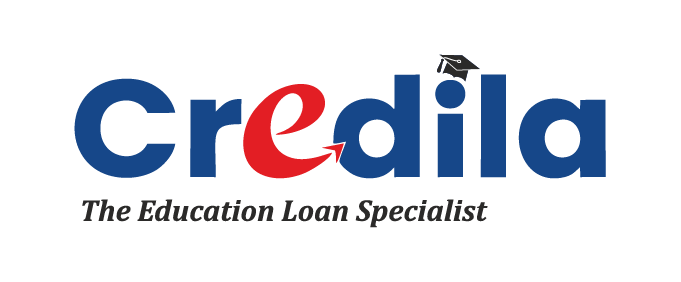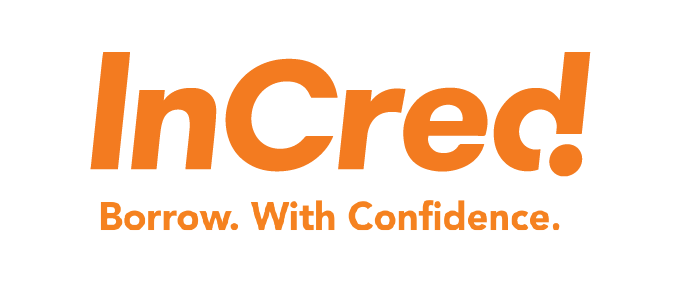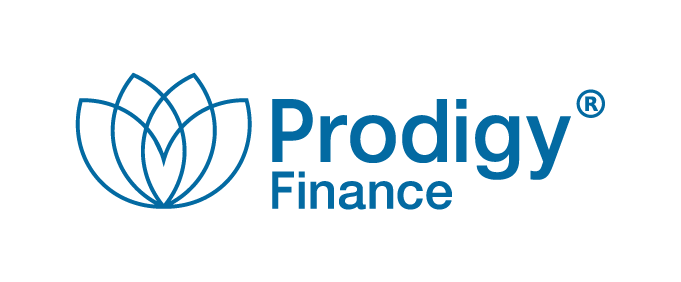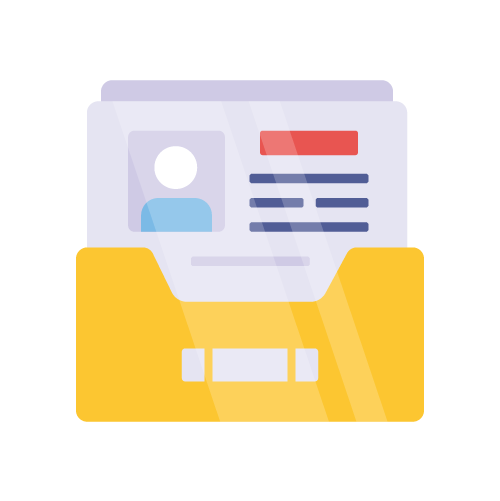According to the official ETS (Educational Testing Service) TOEFL website, test-takers are advised to arrive at least 30 minutes before their scheduled test time – and this is just one of the essential do’s and don’ts that can make or break your exam experience. The difference between showcasing your true English abilities and watching months of preparation go to waste often comes down to these critical test-day practices and protocols. In fact, while language skills form the foundation of success, understanding these essential do’s and don’ts regarding test-day logistics can significantly impact your performance and score.
The Test of English as a Foreign Language (TOEFL) serves as a gateway to countless educational and professional opportunities worldwide. Given that registration fees typically exceed $200 and test dates are sometimes booked months in advance, ensuring you’re fully prepared for the logistical aspects of test day becomes just as important as mastering grammar and vocabulary.
With this in mind, this comprehensive guide provides essential insights into navigating TOEFL test day successfully. From document preparation and stress management to strategic approaches for each test section, these practical strategies will help you arrive at your testing center composed, prepared, and ready to perform at your peak when it matters most. By understanding both what to do and what to avoid, you’ll be positioning yourself for success from the moment you wake up on test day until you submit your final answer.
The following roadmap will guide you to understand the important sections of TOEFL Test Day preparation:
Roadmap for TOEFL Test Day
- Do’s of Test Preparation
- Don’ts That Could Smash Your Dreams
- Your Performance Playbook
- Strategic Test-Taking Mindset: Tips and Hacks
- Case Studies
- Frequently Asked Question: Dispelling TOEFL Test Day Doubts
- Conclusion: Final Motivation and Next Steps
Let’s begin by breaking it down for you! Instead of long-winded strategies and boring arguments to make, we have made this blog an interesting read!
Come along, let’s nip that TOEFL stress you have right in the bud!
Do’s of Test Preparation
1. Create Your Ultimate Test Day Survival Kit Pack –
Be a pro and eliminate last-minute stress. Your test day survival kit is your secret weapon against last-minute stress and unexpected challenges, transforming preparation into confidence. Think of it as your personal emergency toolkit—meticulously packed with everything from essential documents to comfort items that will keep you calm, focused, and ready to conquer the TOEFL. Your test day survival kit should include:
- Valid passport or government-issued ID (absolutely non-negotiable!)
- Printed test admission ticket
- Comfortable, layered clothing (test centers can be unpredictable temperature-wise)
- Clear water bottle (transparent and sealed)
- Minimal, essential stationery (though most will be provided)
- Healthy, energy-boosting snacks for breaks
- Noise-canceling earphones for pre-test meditation or relaxation
2. Tech and Documentation Prep
In the digital age, your documentation is your lifeline. In the digital era, your documentation is more than just paperwork – it is your permit to test day success, serving as your ultimate proof of identity and eligibility. Master the art of digital and physical document preparation to eliminate last-minute surprises and sail through the TOEFL check-in process with confidence and ease. Always double-check the following:
- Ensure your ID exactly matches your TOEFL registration name
- Take a clear, recent photo for identification
- Screenshot or print all confirmation emails
- Have digital and physical copies of important documents
- Check your test center’s specific ID requirements (some have strict rules)
Don’ts That Could Smash Your Dreams
1. Avoid Last-Minute Cramming –
Last-minute cramming is the silent dream crusher that transforms your carefully prepared potential into a whirlwind of anxiety and mental fatigue. Recognize that true test success comes from strategic preparation, not desperate eleventh-hour studying that overwhelms your brain and undermines your confidence. Your brain needs rest, not information overload! Do you know what cramming does?
- Increases Anxiety
- Disrupts Sleep Patterns
- Reduces Information Retention
- Creates Unnecessary Mental Fatigue
Instead, focus on:
- Light review of key concepts
- Relaxation techniques
- Positive visualization of test success
- Early, quality sleep
2. Technology and Communication Pitfalls
In the age of constant connectivity, technology, heightened communication, and networking can be your greatest distraction! Navigate these digital danger zones with precision by protecting your focus, silencing your notifications, and creating a mental firewall against anything that could potentially derail your TOEFL success. Danger zones that can derail your test day include:
- Avoid social media test day anxiety spirals
- Never rely solely on digital tickets (always print!)
- Stop comparing yourself with others’ preparation
- Disconnect from negative energy sources
Your Performance Playbook
1. Do’s to Maximize Test Day Performance
- Morning Ritual for Champions – It is said that champions are not born in the moment of triumph, but in the quiet hours of preparation before the world awakens! Your morning ritual is a powerful symphony of intentional actions that transform nervous energy into focused determination, setting the stage for your TOEFL success long before you enter the test center.
Your morning sets the tone for success, so:
- Wake up at least 3 hours before test time
- Eat a balanced, protein-rich breakfast
- Hydrate strategically (but not excessively)
- Practice 10-minute meditation or breathing exercises
- Do light stretching to reduce physical tension
2. Strategic Arrival and Check-In
- Timing is Everything – Your arrival at the test center is like the opening scene of a crucial performance where every detail matters and every second counts. Master the art of strategic arrival. Transform those critical moments from potential stress points into a confident, smooth entry that sets the perfect tone for your TOEFL success.
Ensure that you:
- Arrive at least 30 minutes before reporting time
- Bring multiple ID forms if possible
- Dress in comfortable, layered clothing
- Carry only permitted items
- Stay calm during security checks
3. Dont’s That Can Derail Test Day Performance
- Mental Sabotage Traps – Your mind is a powerful battlefield where confidence and doubt wage a constant war, and mental sabotage traps are the silent assassins waiting to ambush your TOEFL performance. Recognize these psychological landmines, disarm them with strategic awareness, and transform your inner dialogue from a potential enemy to your most powerful ally.
So, avoid these mental pitfalls:
- Don’t entertain self-doubt
- Stop comparing yourself to others
- Avoid discussing the test with anxious friends
- Don’t consume caffeine excessively
- Never skip breakfast
4. Physical and Logistical Mistakes
- Key Avoidance – In the high-stakes arena of the TOEFL, physical and logistical mistakes are like invisible tripwires that can instantly derail your carefully planned journey. Your success hinges not just on language skills, but on the meticulous navigation of seemingly minor details that can make or break your entire test experience.
Critical errors to prevent:
-
- Don’t wear noisy jewelry or accessories
- Avoid tight clothing that restricts movement
- Never ignore test center instructions
- Don’t bring unauthorized electronic devices
- Stop overthinking past preparation
Strategic Test-Taking Mindset: Tips and Hacks
1. Pro Tips for Staying Calm and Focused – Your test-taking mindset is the invisible armor that shields you from anxiety and propels you towards success, transforming the TOEFL from a daunting challenge into a conquerable opportunity. Think of your mental strategy as a finely tuned instrument, capable of navigating through stress, maintaining razor-sharp focus, and turning potential pressure into peak performance.
For a healthy mindset, we believe the following tips should help:
- Practice mindful breathing between sections
- Use break times effectively for a mental reset
- Stay hydrated but use the restroom strategically
- Maintain a confident, positive posture
Remind yourself of your preparation and potential
2. The Power of Positive Visualization – Your mind is your most powerful tool. In fact, visualization is the secret weapon of champions, a mental magic that transforms abstract dreams into tangible success long before the first test question appears. Your imagination becomes a powerful rehearsal space where confidence is built, obstacles are conquered, and your TOEFL triumph is already written in the landscape of your mind.
Before entering the test center:
- Visualize yourself succeeding
- Remember your motivation
- Connect with your dream university or career goal
- Believe in your English communication skills
CASE STUDIES
Case Study 1: Ahmed’s Success Story
Ahmed, a university student from Indonesia, had been preparing for his TOEFL exam for three months. His target score was 100 to qualify for a graduate program in the United States. Here’s how her test day unfolded:
What Ahmed Did Right:
- Arrived 45 minutes early to the test center, giving her time to check in, use the restroom, and mentally prepare.
- Brought all required identification (passport and secondary ID) in a clear plastic bag along with his registration confirmation.
- Ate a balanced breakfast with protein and complex carbohydrates to maintain energy throughout the four-hour test.
- Dressed in comfortable layers to adjust to the varying temperature of the testing room.
- Took full advantage of the breaks between test sections to stretch, use the restroom, and have a quick snack (nuts and a banana).
- Used the provided noise-canceling headphones effectively during the listening section.
- Practiced deep breathing whenever he felt anxious during the test.
The Result:
Ahmed scored 105 on his TOEFL, exceeding his target. He attributed his success not just to his preparation, but also to his strategic approach to test day logistics, which allowed him to focus entirely on the content rather than external stressors.
Case Study 2: Tania’s Learning Experience
Tania, an engineering graduate from Mexico, had studied English for years but struggled with test anxiety. Her first TOEFL attempt didn’t go as planned. Here’s what happened:
What Tania Did Wrong:
- Stayed up late the night before reviewing vocabulary, arriving at the test center feeling tired and foggy.
- Rushed to the test center, arriving only 10 minutes before the scheduled time, causing unnecessary stress.
- Forgot her admission ticket and had to use the center’s computer to log in and reprint it, wasting precious preparation time.
- Drank a large coffee right before the test, causing both jitters and a need to use the restroom during test sections.
- Skipped breakfast, leading to hunger and distraction midway through the test.
- Wore uncomfortable formal clothes thinking she needed to “dress up” for the test.
- Spent too much time on difficult questions in the reading section, rushing through the final passages.
- Became visibly frustrated during the speaking section, affecting her performance on subsequent tasks.
The Result:
Tania scored 78, well below her target of 90. After reflecting on her experience, she rescheduled the test for two months later. For her second attempt, she corrected all these mistakes and scored 92.
Key Takeaways:
The TOEFL isn’t just a test of English proficiency—it’s also a test of preparation, time management, and stress control. While your language skills develop over months or years, your test day strategy can make a significant difference in your final score. Plan the logistics carefully, prioritize your physical comfort and mental well-being, and remember that the best test-takers are those who can remain calm and focused throughout the entire experience.
Frequently Asked Questions: Dispelling TOEFL Test Day Doubts
DO: Bring your valid passport with your name exactly matching your TOEFL registration. This is the only acceptable ID for most test-takers worldwide.
DON'T: Bring an expired passport or alternative ID forms like driver's licenses or national ID cards unless specifically approved in your country. Never arrive without proper identification as you will be denied entry without exception.
DO: Arrive at least 30 minutes before your scheduled test time to complete check-in procedures, including identity verification and security checks.
DON'T: Arrive late, as latecomers may be denied entry regardless of the reason. Test centers operate on strict scheduling, and late arrivals disrupt the testing environment.
DO: Bring only essentials like your passport and test appointment confirmation.
DON'T: Bring electronic devices (phones, watches, calculators), study materials, bags, food, drinks, or personal items. These must be stored in provided lockers and cannot be accessed during breaks except for medication or food for medical purposes with prior approval.
DO: Rely on the clock provided on your testing computer to track time.
DON'T: Wear any type of watch (including analog, digital, or smartwatches). All watches must be removed and stored before entering the testing room.
DO: Take the optional 10-minute break offered between the Listening and Speaking sections. Use this time to visit the restroom, have a quick snack, or drink water in designated areas.
DON'T: Exceed your break time, as the test will automatically resume whether you're back or not. Don't attempt to access study materials, phones, or other prohibited items during breaks.
DO: Eat a good meal before your test. You may consume snacks and beverages only during breaks in designated areas.
DON'T: Bring any food or drinks into the actual testing room. If you have medical needs requiring access to food or drink during the test, request accommodations well in advance.
DO: Use the erasable note-board and marker provided by the test center for note-taking. Return these materials after completing your test.
DON'T: Bring your own paper, pens, pencils, or erasers. Using unauthorized note-taking materials may be flagged as a security violation.
DO: Dress in comfortable, layered clothing that allows you to adjust to varying room temperatures.
DON'T: Wear items that may require additional screening, such as large jewelry, scarves, hats, or items with multiple pockets. Avoid wearing any clothing with excessive writing that could be perceived as containing test-related information.
DO: Raise your hand immediately to alert a proctor if you encounter any technical difficulties or if your computer malfunctions.
DON'T: Try to resolve technical issues yourself or continue testing if something isn't working properly. Don't wait until after the test to report problems, as they may not be addressed retroactively.
DO: Request accommodations well in advance (at least 60 days before your test date) through ETS Disability Services with proper documentation.
DON'T: Wait until the last minute to request accommodations or assume accommodations will be made without prior approval. The test center cannot provide unauthorized accommodations on test day.
Conclusion: Final Motivation
Navigating TOEFL test day successfully requires much more than English proficiency alone. As we’ve seen, proper preparation begins well before the actual exam, with strategic planning that includes creating a comprehensive test day survival kit, ensuring all documentation is in order, and avoiding common pitfalls like last-minute cramming or technology distractions. The cases of Ahmed and Tania clearly demonstrate how these seemingly small details can significantly impact your overall performance and final score.
Your physical and mental preparation are equally crucial components of test day success. Establishing a champion’s morning ritual, arriving strategically at the test center, and maintaining a positive mindset through visualization techniques can transform potential anxiety into focused determination. By avoiding mental sabotage traps and physical or logistical mistakes, you position yourself to demonstrate your true English abilities when it matters most. Remember that the TOEFL isn’t just testing your language skills—it’s also evaluating your ability to perform under pressure in a structured environment.
The comprehensive FAQs addressed in this guide provide clarity on essential questions regarding identification requirements, arrival times, permitted items, break protocols, and accommodations. By following these guidelines meticulously, you eliminate unnecessary stressors and create the optimal conditions for showcasing your language proficiency. With a clear understanding of both what to do and what to avoid, you’re now well-equipped to approach your TOEFL test day with confidence, composure, and the strategic mindset needed for success.
The Next Steps: Preparing for TOEFL Success with Collegepond Trainers
Having understood the essential do’s and don’ts for TOEFL test day, you might be wondering how to implement these strategies effectively in your preparation journey. This is where expert guidance becomes invaluable.
DO:
- Seek professional coaching that addresses your specific challenges with the TOEFL exam
- Practice with materials that accurately simulate actual test conditions
- Learn proven strategies refined through thousands of success stories
- Begin your preparation well in advance of your test date
- Consider personalized feedback on your speaking and writing responses
DON’T:
- Leave your international education or global career aspirations to chance
- Rely solely on generic preparation materials that don’t target your weaknesses
- Wait until the last minute to address test-taking strategies
- Underestimate the value of expert guidance in navigating the complexities of the TOEFL exam
- Miss opportunities for mock tests that can help you identify areas for improvement
Ready to implement these critical do’s and don’ts for your TOEFL success? Expert counsellors and trainers can provide personalized coaching, cutting-edge practice materials, and proven strategies refined through years of experience. With the right guidance, you can transform from an aspiring test-taker to a high-scoring achiever.
Your TOEFL score is too important to leave to chance. Consider reaching out to testing experts who can help you navigate both the content knowledge and test-day strategies necessary for success on this crucial exam. Your future self will thank you for taking this decisive step toward achieving your international education and career goals!

